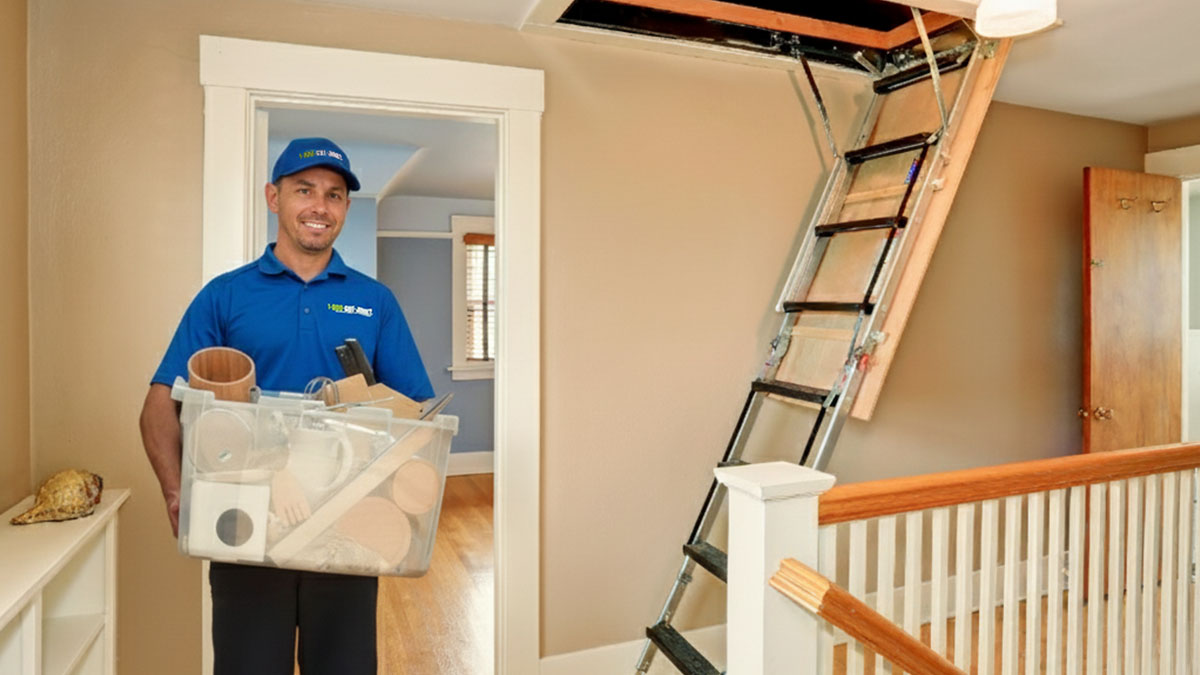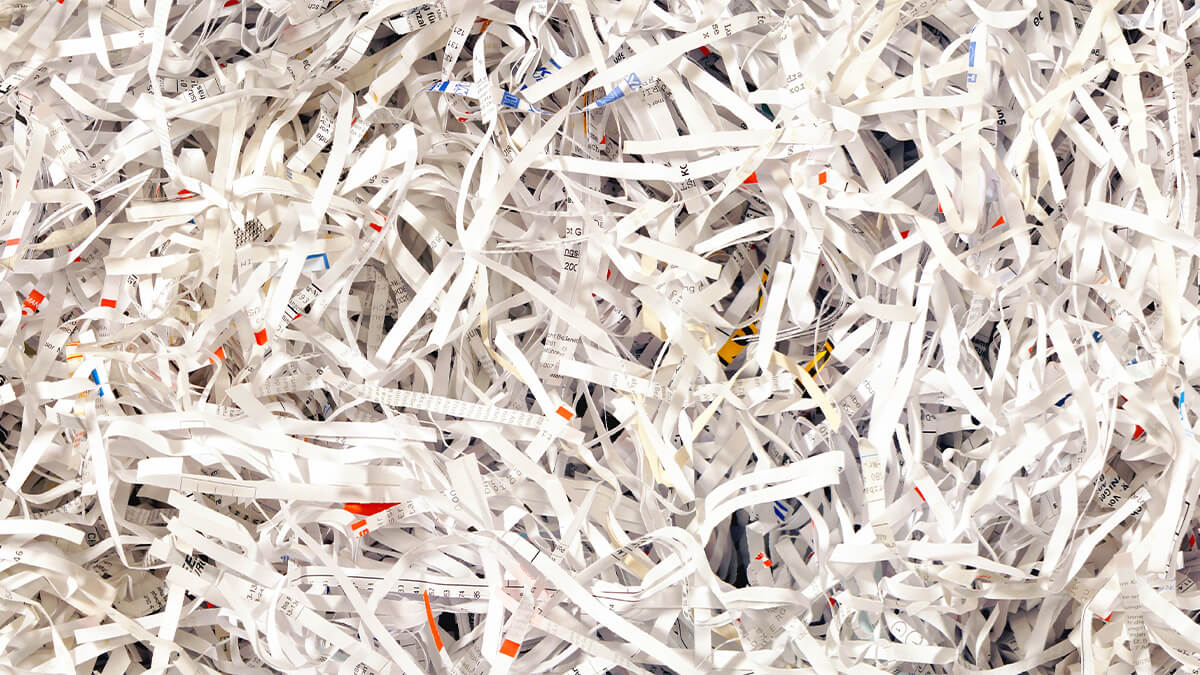What we’ll go over:
- Why you should declutter your home
- Why you might struggle with decluttering your home
- How to declutter your hallway or entryway
- How to declutter your closet
- How to declutter your bathroom
- How to declutter your bedroom
- How to declutter your home office
- How to declutter your kitchen
- How to declutter your garage
- What to do with your unwanted items
It's easy for our homes to get cluttered in the blink of an eye. One day the mess seems manageable, then the next you’re overwhelmed by it and don’t know where to start.
Although there are many good reasons to declutter a home, many people find this a challenge. Here are some tips for decluttering, cleaning, and organizing your house room by room.
Why you should declutter your home
You feel it when your home gets too cluttered. There’s less space, things are where they shouldn’t be, and you can’t find what you need. Here are some compelling reasons why decluttering your home can be beneficial.
Better time management: When your space is cluttered, it can take extra time to find things or navigate through your belongings. Decluttering your home and organizing your possessions can save you time and energy in the long run.
Boosted creativity: Clutter can be visually distracting and mentally draining. A clean and organized home can stimulate your creativity and help you think more clearly, promoting fresh ideas and innovative thinking.
Enhanced health and safety: Clutter can collect dust and allergens, along with increasing the risk of accidents and falls. Decluttering can create a healthier and safer living environment for yourself and your family.
Increased positivity: Decluttering and organizing your home can provide a sense of accomplishment and satisfaction. A clean and organized home can foster a positive mindset and improve your mood.
Reduced stress: Clutter can contribute to feelings of anxiety and being overwhelmed. Decluttering your home can create a more serene and organized space, promoting a sense of calmness and reducing stress.
Strengthened productivity: A cluttered home can hinder your ability to focus and be productive. By decluttering and organizing your belongings, you create a more functional environment that supports productivity and helps you stay focused.
Even knowing the positives, some people have a problem beginning a decluttering project. Here are some barriers to decluttering.
Why you might struggle with decluttering
Everyone wants to have an organized, clutter-free home, but it can be hard knowing where to start, especially if a lot of unwanted items have accumulated. Not only can purging your house be time-consuming, but it can also be quite daunting. For some, not knowing where to start, causes them to feel extremely overwhelmed.
If you are wondering “Why can’t I get rid of things?” it could be due to decluttering paralysis, where you’re so overwhelmed by the mess you almost feel paralyzed by it.
The first step in conquering decluttering paralysis is understanding where it originates from. Here are three common reasons you might struggle with getting rid of your unwanted items and how you can overcome them so you can begin to clear the clutter in your home.
1. Guilt
Many times we cling onto an item because we feel guilty throwing it away. This could be because it was a gift or it cost a lot; either way, you don’t want to see it end up in the trash. One way to get past this guilt is by donating it. You’ll save the item from the landfill and give it a new life where it actually gets used instead of just collecting dust and taking up space!
2. Sentiment
Sentimental items are always hard to part with since their value goes beyond their practical purpose. Whether the items were given to you by a loved one, are attached to a memory, or were belongings of a loved one who passed, it can be very hard to say goodbye. If you know the item doesn’t hold any use to you other than sentimental value, consider taking a picture of it! This way you can remember the item without sacrificing your space.
For a more detailed step-by-step process, check out these 5 steps to get rid of sentimental clutter.
3. Future use
If you’ve been hanging on to items because you think you’ll use them in the future, it’s probably time to say goodbye. Maybe it's the food processor you got as a wedding gift that’s still in its box or the pair of jeans that are a size too small. If you haven't used it in the past year, it shouldn’t be taking up space in your home. A good rule of thumb: if you’ve forgotten the item exists until you’ve rediscovered it in your cleaning process, it’s time to let it go.
Once you’ve gotten past those mental roadblocks and you’re in the right mindset to declutter, you can start to clear the clutter and reclaim your space!
Reclaim your space one area at a time
A great first step is to begin with a small space, like a closet in an entryway. By focusing on this one space, you will get into the groove of sorting through all your things and will make the task seem much more manageable. Just focus on one area at a time and slowly work your way through the rest of your home.
1. How to declutter your hallway or entryway
To get started, pull out everything from your closets, shelves, hooks, and cubbies. Sort through everything, one item at a time. Create separate piles for things you want to keep and things you plan to get rid of. The next step is to put back only the items you’re holding onto.
The key to keeping these small spaces neat and tidy is to make sure there’s a place for everything. This means finding a designated spot for everything in your home, no matter how small! While it might be a little difficult for most people to stick to this, you should definitely try to practice it for the items you use the most. It can be as simple as getting baskets with labels for your things. (i.e. hats and gloves in one, umbrellas in another.) This can help make organization much easier in small areas such as bathrooms and entryways.

2. How to declutter your closet
Whether your closet is in your bedroom or it’s overflowing into storage space, sorting through your clothes is a must. So how do you go about cleaning out your closet? To get started, pull everything out all at once and put it in piles. As you go through each pile, hold up each item and think about whether you truly need it or not. Create a separate pile for everything you plan to get rid of. Once you’ve gone through everything, you can put all the items you’re keeping back into your closet.
Another strategy is to hang everything in your closet backward. As you wear something and then put it away, hang it up again the right way. After a period of time, say six months, get rid of everything you haven’t worn.
Either way, it’s a good idea to go through your wardrobe every season to reevaluate what you’ve got. This helps prevent clutter from building up too much in your closet in the future. You should only keep pieces that truly bring you joy—you should feel good when you wear things, and therefore let go of anything that doesn’t make you feel great when you wear it.

3. How to declutter your bathroom
Bathrooms are notorious spots for clutter to build up since they often house a lot of smaller items and sometimes don’t have a ton of storage space. It’s easy to let things pile up—it’s likely you’ll find expired medication, old unused bandages, cosmetics, and grooming products that never got used up and have been sitting there for ages.
Start by tackling your vanity. Pull everything out from your medicine cabinet, under the sink, and empty out the drawers. As you sort, group like items together: keep all the hair stuff together, all the makeup in another pile, etc. When you’re done, go through each group and toss anything that has expired or that you know is really old. If you haven’t used it in a year, you probably don’t need to hang onto it.
Once you’ve decided what to keep, put all those items away with like items grouped together. If you have space, use baskets in cupboards, drawers, and shelves to keep things organized and easy to find. For more ways you can optimize your bathroom, check out these four bathroom organization tips.

4. How to declutter your bedroom
The most prominent part of your bedroom is the bed, so you should make sure it’s clean! Be sure to wash the sheets and make the bed, then your room will already feel a bit more tidy. Next move on to any surfaces such as dressers, bedside tables, or shelves, and get rid of the items you no longer need. There shouldn't be any clutter on the floor; if your clothes have overflowed, be sure to sort them. If you can’t put the items away in a proper home, they probably don’t belong.

5. How to declutter your home office
When it’s time to declutter your home office, there’s one easy place to start: all those piles of paper! People often end up hanging onto papers for much longer than they need to, simply because they’re not sure what to do with them. You should only hold onto the truly important items—clear out receipts after you’re sure you won’t need to return items and consider scanning any paper items you want to hang onto.
Once you sort through old paperwork and decide what to throw away, make sure you sign up for digital copies of all your bills and receipts where possible. This will help prevent the buildup of paperwork in the future.

6. How to declutter your kitchen
The kitchen is one of the busiest areas of your home, so it's understandable that clutter and grime can easily accumulate.
When you start cleaning your kitchen, you should first remove all non-kitchen-related items. That way, you can get a better idea of what actually needs to be stored there. Next, take an inventory of all your appliances, dishware, cutlery, dish towels, etc., and see if you have any duplicates or extras you can get rid of. You should also clear out any item you don’t use or is broken. Even if you have the intention of using it or fixing it, you need to be realistic if you actually will.
Find out more about how to organize your kitchen.

7. How to declutter your garage
If you find that you don’t actually have room in your garage to park your car, it’s probably time to clean out your garage! Since it’s typically not a space where people hang out, your garage can quickly become a place where you store all the random things you don’t know what to do with.
To tackle this task, start by pulling everything out and grouping like items together. Then, sort through each pile and decide what to keep and what to get rid of, setting aside all the items you’re not keeping. If you have trouble deciding what to get rid of, here are a couple of things to consider.
First, it’s probably safe to get rid of anything that’s damaged or has rust on it, and only keep things you actually need. Second, if you can’t envision yourself using it in the next year, it might be time to let it go. When it’s time to put everything back in, consider installing some sturdy garage shelving to help keep everything organized.
For more organizational ideas, check out these three garage storage tips.

What to do with your unwanted items
Now that you have reclaimed your space and sorted all the things you no longer need, it’s time to get rid of them! Anything that’s still in usable condition may be able to be donated to local charities, but it’s likely you’ll need to transport items there on your own.
For any unusable items, you will probably need to take it to the dump yourself, as many areas don’t offer pickup services for larger items. For these reasons, it’s worth considering hiring a junk removal company to handle it for you.
1-800-GOT-JUNK? can take your clutter away
At 1-800-GOT-JUNK?, we’re experts in decluttering and can get all that unwanted junk out of your way in no time. We’ll do all the heavy lifting—all you have to do is point.
Learn more about what we take or contact your local 1-800-GOT-JUNK? franchise for a free, no-obligation quote. You can also check out our blog for more helpful topics such as how to limit clutter entering your home.






